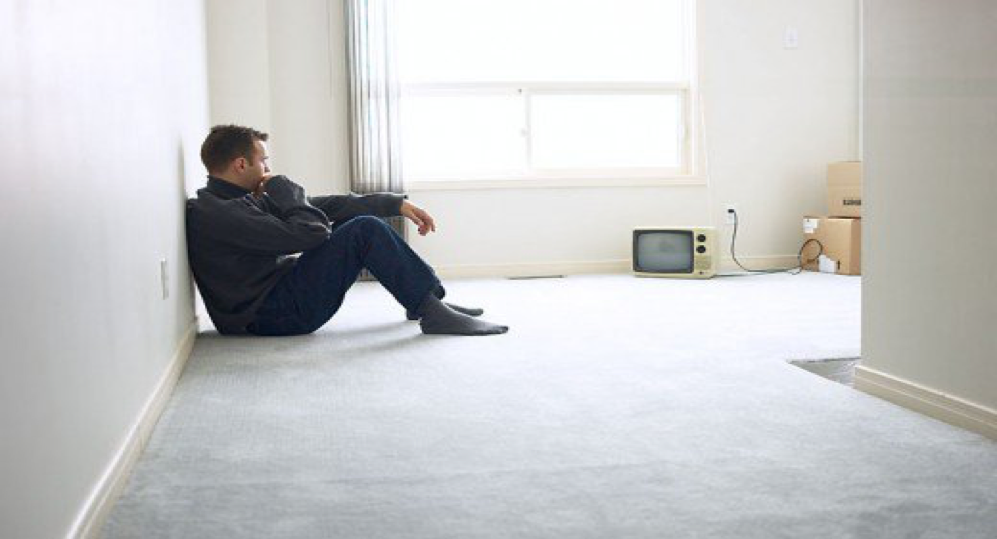Divorce can trigger all sorts of unsettling, uncomfortable, and frightening feelings, thoughts and emotions. These include grief, loneliness, depression, despair, guilt, frustration, anxiety, anger, and devastation. Frequently sadness and grief can manifest at the thought of the end of a significant relationship. There can be fear at the prospect of being single again and at the idea of changing financial, living and social circumstances. Perhaps anger at a partner’s stubborn obstinacy, pettiness, abuse, or outright betrayal. There can be guilt over perceived failures to have made the relationship work. There can be overwhelming depression at the thought of the seeming impossibility of being able to cope with all the changes that are required. Any and all of these emotions are enough to make people feel miserable.
Painful as they are, these sorts of emotions are generally natural grief-related reactions to a very difficult life-altering situation. Though there is no ‘cure’ for these feelings, however, there are some good and healthy ways to cope as well as become wiser, stronger, and more compassionate through the process. The emotional coping process starts with allowing one’s self the freedom to grieve and ends with moving on with one’s life.

1. Allow Grieving
Grief is a natural reaction to loss. Grief is not a simple emotion itself, but rather an instinctual emotional process that can invoke all sorts of emotional reactions. The grief process tends to unfold in predictable patterns. Most commonly, people move back and forth between a state of shock characterized by denial, depression, and/or minimization of the importance of the loss. They may also feel anger, fear, and vulnerability. The shift between numb and upset continues over time as the person emotionally digests the nature of the loss.
Ultimately, enough time passes that the loss begins to be though of in the past tense and no longer a part of day-to-day life. Grief doesn’t so much go away as it becomes irrelevant after a while. Fighting grief is often counterproductive. Most of the time it is best to allow yourself to grieve in the ways that come naturally to you. Eventually life comes back to ‘normal’ and the intensity of loss retreats.
Different people take different amounts of time to go through the grief process and express their grief with different intensities of emotion. The amount of time people spend grieving depends on many factors and on the nature of their losses. Someone whose marriage was betrayed might take a longer time to work through their grief and do it in a more vocal way than someone who chose to leave a marriage. It is not realistic that grief over a lost marriage should be worked out in a month or even several months. Most people will continue to deal with the emotional ramifications of loss for many months, sometimes years. People who find their grief lasting more than 12 months are strongly urged to seek the assistance of a professional therapist.
2. Prioritize
Unfortunately, life doesn’t stop just because you are hurting. Despite grief, there will be chores that need doing and bills that need paying. There may also be any number of extraordinary tasks that must be accomplished during the transition from married to single person. These may be finding an apartment, turning on utilities, changing addresses, etc. Creating a list of necessary chores can help to reduce their stressful impact on your life. All chores should be placed on the list in the order of their importance. Starting with the most essential, each chore is then worked through and crossed off the list as it is completed. The simple act of prioritizing and checking items of your list helps to make sure that all necessary chores get accomplished. Furthermore, it helps to generate a feeling of control over what might otherwise be experienced as unmanageable demands.
3. Put Things Away
As soon as it is practical to do so, start living as a single person again. Put old photographs and mementos away where you don’t have to look at them all the time. Start paying your own bills and handling those aspects of life that your ex-spouse used to do for you. Limit your contact with your ex-spouse. In general, do what you can to confidently look forward towards the future, rather than backwards at your divorce.

4. Talk to Someone
Many grieving people find that their suffering is lessened when they are able to share their hurt feelings with a sympathetic audience. For this reason, it is often helpful to tell trusted family and friends that they are getting divorced. And if appropriate, to request assistance from these trusted people as they are able to offer it. Finding someone who can listen thoughtfully, offer comforting advice, and allow you to vent often proves very helpful.
However, not everyone is a good listener. Even those who are will have lives of their own and may get fatigued over time. Especially if one’s grief process is not brought under control. Some friendships might also prove too fragile to survive divorce and will be lost in spite of your best efforts. It is best to use judgment when deciding with whom to share, how much to share, and how often to share.
If you find that you would rather not talk to friends and family, other support opportunities are there for you. These include support groups or a professional therapist. Support groups are self-help meetings attended by people going through the same sorts of circumstances. They are generally sponsored by community centers and religious institutions. Divorce support groups provide a face-to-face forum where people in different stages of divorce come together to educate and support one another.
Psychotherapy and counseling can also be excellent options for obtaining divorce support. A qualified therapist is a trained and empathic listener. They have an expert understanding of how divorce affects and changes lives. He or she will be able to provide a safe place where you can vent your emotions and talk about your fears. Especially those feelings that feel too private and too intense to talk about elsewhere. He or she will also be able to provide expert guidance on managing stress, grief, self-defeating thoughts, and parenthood while helping you to rebuild your life. The ‘chemistry’ between a therapist and client is important. It is often a good idea to interview one or more therapists prior to committing to working with any particular one. This way you can find one who makes you feel safe and who you trust to give you the best guidance.
5. Support Yourself
In addition to seeking support and guidance from others, there are also good ways you can help yourself to cope. Maintaining (or starting) healthy routines is a primary means of self-support that frequently gets overlooked. Divorce is a stressful time of change, and many of your good habits may feel hard to maintain. At a personal level, making time to exercise regularly, getting enough sleep, and eating regular healthy meals can help to preserve your health and reduce the effects of stress. Keeping your positive routines intact can be a comfort during this time.
Keeping a journal of your thoughts and feelings as you go through your adjustment can also provide many benefits. Most pressingly, journaling allows a further outlet for emotional upset. Describing your pain and what you are struggling with in writing helps you to attain a better grip on your life and to gain a better perspective your emotions and the situation. In addition, writing is therapeutic as well as cheap. Requiring only a notebook and a pen, journaling can be done at any time of day or night, making it an ideal self-help strategy.
6. Distract Yourself
Sometimes it’s not enough to write or talk about how you are feeling. At these times being ready and able to distract yourself is helpful. Watching a television show or movie, reading a book, surfing the net, exercising, cleaning the house, organizing files, and other attention-demanding tasks can help to get your mind off painful feelings. It is helpful to prepare in advance a list of what needs doing, and to get copies of compelling books and other media handy so that when distraction is needed. With these distractions prepared, it will be easy to pick something healthy or worth doing the moment you need them.

7. Relax
Divorced people are often wounded people, and wounded people need to be gentle and compassionate with themselves while they heal. Treating yourself to a few comforting and healing experiences you might not otherwise allow yourself can be of great help. Experiences like getting a massage, taking a long bath or hot shower, or a plate of your favorite food can help to relax you and give you a sense of being cared for, all of which can be balm for a bruised soul. Religious, yoga, and meditation retreats, vacations, and similar excursions can have a similar effect. So long as finances allow and healthy routines do not get disrupted, these comforts and small extravagances can help the healing process.
8. Explore Your Interests
In divorce, one door slams shut and people tend to spend a lot of time adjusting to that closure. What they come to see after a while, however, is that when one door closes, another door opens. Therefore, divorce is a new beginning as well as an ending. It is the perfect opportunity to explore new interests. Finding one or more causes, clubs, fields, hobbies, or projects you are interested in is beneficial in a number of ways. New interests capture attention in the present and helps you to focus less on the past. In so doing, they help people to start thinking of themselves as explorers and decision-makers and not simply as victims of circumstances outside of their control. Exploring interests can make you happy and also help you to make new friends.
9. Avoid Dangerous Behavior
Divorcing people can be wounded people, and wounded people sometimes hurt so much that it clouds their judgment. When you is hurting, you may be tempted to do almost anything that promises to remove the pain. The problem is that some solutions for removing pain may work well in the short term, but can be dangerous in the long run. Failure to use judgment when deciding how to cope with emotional hurt can result in negative outcomes. Avoid these types of dangerous behaviors:
- Using drugs or alcohol or gambling or promiscuous sexuality as a means of coping with pain or loneliness
- Diving into a new intimate relationship just because you’re lonely
- Acting on angry impulses you might have towards your ex-spouse
- Stalking your ex-spouse
- Cultivating revenge fantasies involving your ex-spouse. Your successful life post-divorce will be your best revenge
- Making large decisions for a while after your divorce
If you are struggling with divorce and you feel yourself needing more than these tips to get you through, a therapist may be of great help to you. At Gateway 2 Counseling we can help you come out on the other side.
Struggling with divorce? We are there for you.

